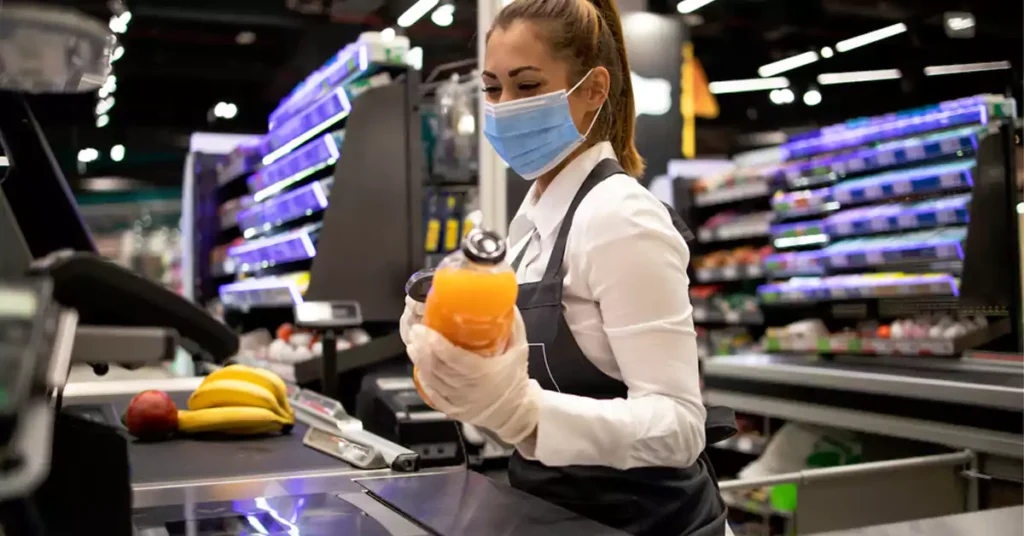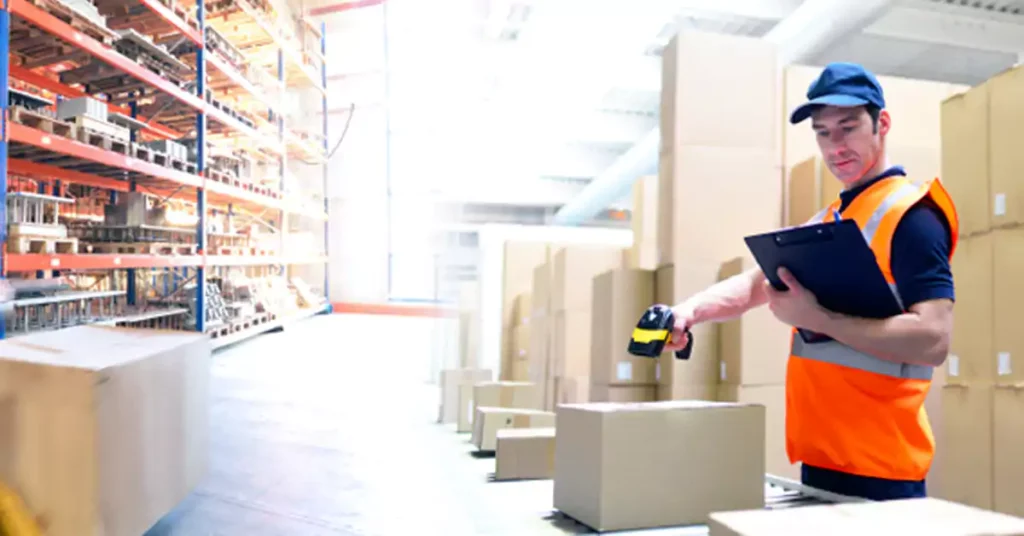Let’s talk about a controversial topic today; 10 jobs technology will kill before 2030.
As AI becomes more intelligent, more individuals ask themselves, “Is my job safe?”
This is such a hot topic that even a website named “Will Robots Take My Job?” has been created to address it.
According to John Pugliano, author of “The Robots Are Coming, “many white-collar jobs will be endangered by automation.
Pugliano stated, “any routine work that a mathematical or logic equation can easily characterize will be at risk.” On the other hand, “Those who can invent new products/services or solve/fix unanticipated difficulties will have opportunities.”
So, while your accountant may be out of work in the future, plastic surgeons and emergency department specialists should be in demand. And according to Pugliano, plumbers will always be in need.
Had a good laugh? Okay, let’s continue.
AI can evaluate sales conversations far faster than any sales manager could. A person could only compete after nine years of uninterrupted call analysis, and that’s if they didn’t take vacations or sleep.
AI is already being used to design content strategies and email marketing playbooks for marketers, and with time, it takes on a larger role in the process.
If you believe AI is only disrupting jobs on manufacturing lines, think again: AI is outperforming humans in several elements of sales and marketing as well.
Want to see our top 10 jobs that will not survive the next twenty years? Please stay on this Page. (No worries, they are no robots here)
1. Drivers

To put it into perspective, if your employment entails operating any form of machinery, motor, or vehicle, you will soon be out of work. Taxi, bus, truck, Uber, and delivery drivers are all on the cusp of being completely automated.
It is estimated that there are 15.5 million trucks and 2 million tractor-trailers in the United States alone. A total of 14 million people work in the transportation industry, with 10 million of them being truck drivers.
These are the folks who will lose their jobs first since a self-driving truck does not need to stop for rest and is always focused on the road, and we already can do so. Believe it or not, the German government is already on board, and they’re banking big on self-driving trucks.
Above all, we know that the next generation of Tesla vehicles will be completely self-driving. Elon Musk himself estimates that it will take one to two years to perfect the technology, followed by three years to secure official approval.
All major automakers are pursuing electrified and self-driving vehicles and those who do not will be left behind.
In the not-too-distant future, getting into an automobile will be similar to getting into an elevator. You simply push a button, and it transports you to your desired location.
Now, what will happen to the estimated 20 million people whose livelihoods are based on driving?
These individuals will have to remake themselves several times. This may be simple if you’re between the ages of 20 and 30, but what would a 50-year-old cab driver be able to adjust to? I’m not sure how these individuals will transition from taxi driving to 3D modeling for virtual worlds, but we will see.
2. Farmers

Back in the day, farming employed a large number of people. This has drastically changed. In underdeveloped parts of the world, farming is still seen as human labor-intensive.
Still, on a macro level, it has already been automated, with only a few properly trained workers operating heavy machinery from the comfort of their offices via wireless connections.
Back in the day, you had to physically measure your piece of land, weed it out with human labor, and harvest and deliver the finished product to where it was needed. Today, drones or satellite pictures are now used to measure objects.
Weeds have previously been treated in the soil, or the seeds are weed resistant from the start. Thanks to specialized technology, harvesting and planting can be completed in a fraction of the time they used to, and the vehicles that carry out the work will soon be self-driving.
In the near future, being a farmer will be as valuable as being a banker or a hedge fund manager because there will only be a few people who have an oligopoly over what you eat. If the idea that only a few people would be in charge of our food strikes you as absurd, you’re already late to the party.
Today, almost all of the world’s food and beverage brands are controlled by only ten companies. Almost everything you consume comes from one of them. Nestle, PepsiCo, Coca-Cola, Unilever, Kellogg’s, Mars, and others are among them. Hello, and welcome to the future!
3. Printers and Publishers

The newspaper is no longer in print. Traditional media is being decimated as the Internet consumes everything. Therefore, you no longer need to rely on newspapers for news; instead, you may obtain it immediately via Twitter or live broadcasts.
Traditional periodicals are all struggling to survive, not one against the other, but as a whole. Despite their big push into digital media, they’re on the point of collapse despite having a solid brand.
Information is freely available, and there are few publishers whose brand confidence is sufficient to keep the engines running. The New York Times, for example, is one of the few publications that has successfully instituted a paywall enabling readers to access their written material.
Big businesses struggle to find their place in this online-first climate as fresh sources become more democratized.
If you aren’t in your 50s or older, TV networks are unlikely to be your source for news. So while Trump is watching Fox News, we’re here backing Youtubers on Patreon.
4. Cashiers

Cashiers and in-store salespeople employ 8 million people in the United States. But, unfortunately, these guys will lose their jobs far sooner than they expect.
I know you’ve seen the self-checkout stations, and they still have someone monitoring them and bugging them now and then, but we’re not far from a complete takeover of the machines in this area.
It’s simple to connect the dots if you’ve been paying attention to what the major commerce heavyweights are doing. For example, Amazon purchased Whole Foods for over $14 billion. The same Amazon is conducting pilot tests with a product dubbed “Amazon Go.”
There is a corner store where you walk in, grab what you need, and walk out with no human interaction. Sensors are on the rise, with everything you buy being automatically taken from your credit card, and the technology only needs to be a little better than the human counterpart for the switch to be made.
Also, AI cashiers can work around the clock without bringing their personal life into the office. Intimidating, right?
5. Travel Agent

When last did you book a flight through a travel agent? Companies like Skyscanner have taken over the flight ticket industry. Booking.com has taken over the hotel booking market, and Airbnb is causing havoc in the industry itself.
We don’t need to hire a third party to arrange our flight or hotel room. We can do it on our own. You can also ask Siri to make the reservation for you.
6. Manufacturing Workers

During the Industrial Revolution, all those who previously worked in the fields were forced to work in factories—making the machines that would make our lives easier by hand.
After technological advancements, these same people were put in charge of building machines to replace humans with machines.
One interesting comparison is how cars were built in the Volkswagen factories less than a hundred years ago compared to how they are built today.
Multiple individuals collaborated to put the final product together back then, but today you are witnessing simple software at work. There is a terrific quote that has resonated with us, and it goes like this: “Only one human and one dog will work in the factory of the future.
The dog will be there to feed the human, and the person will be there to keep the dog away from the machinery.”
7. Dispatchers

I know you probably remember the days when you had to connect to a different line to speak with someone manually, but quite an incredible number of dispatchers still work today.
The dispatcher’s job is to organize the field operators to run smoothly for everyone. So it makes no difference if you’re a fireman dispatcher who works with planes, cops, or ambulances.
We already have technology that significantly outperforms you at your work, and we are just putting the finishing touches on the best way to deploy it. Remember when you had to contact someone and get a cab only five years ago?
Today’s method for requesting an Uber or a lift is as follows: Your task is done if one algorithm finds its way into your particular area of dispatching.
8. Bank Tellers

We are sorry to mention this because our bank lady has always been very pleasant. But we are not going to the bank for the sake of socializing. So we do not go to the bank very often anymore, and when we do, it’s when it is absolutely necessary.
Otherwise, we use our iPhones to check our balances. Even our employees’ paychecks are immediately deposited into their accounts, eliminating the need to manually and physically fill out a form with their information.
If you need money, you can go to an ATM. You may open a bank account with most banks across the world online, and only if you need specialized services will you need to meet in person. Even then, you might be able to get the work done through video calls.
9. Stock Traders

Jordan Belfort and Gordon Gekko have seen better days. Only 10% of equities traded daily worldwide are traded by genuine persons and investors, according to a study conducted by Bloomberg analysts in late 2015. BOTS make up the rest.
Wherever money is made, someone will strive to automate it to get an advantage over their competition. The stock market is one of those locations, and the people who run the world’s largest funds have enough money to profit from it.
Do you want to know more? Let’s imagine you wish to purchase a specific stock.
You go to your preferred trading platform or secure portfolio management interface, enter the amount you wish to buy at a trade price, and click “buy.”
During the time it takes for the single to reach the servers and accept the order, the bots have already figured out you’re buying that stock.
It is acquired for themselves, traded, and then sold to you for a higher price. You’ve arrived at the world of micro trading, a world where bots will always come out ahead.
10. Construction Workers

Back in time, when people used their hands and backs to make things happen, there were at least 200 million people employed in the construction industry worldwide, and with developing countries looking to expand, this figure is expected to rise.
However, that is not the case, and this is because technology is becoming increasingly efficient and affordable.
Developers now want additional machines and slightly more specialized staff to use the machines to produce.
As technology advances, we can expect construction employees to follow in the footsteps of individuals who previously worked in the farming business.
The future does not appear to be a welcoming place for you unless you are the owner of the company or one of the specialist employees who are further down the line of automation.
To get more insight into this said topic, please read more about how technology could potentially destroy millions of jobs.
Also feel free to read about how i feel the metaverse could potentially affect some job lines out there
Takeaway
Most occupations will become redundant as AI continues to change the way businesses run. Compared to humans, machines are getting increasingly clever, fast, cost-effective, and efficient.
As a result, some jobs will become entirely automated, forcing individuals to learn new skills to keep their positions. Some occupations, however, will never be replaced by computers or robots because particular human skills are required to complete them.
While assisting robots in providing contextually appropriate interactions is not impossible, search for strategies to stay relevant in the corporate environment. Humans should not ignore the impact of AI on their daily lives because its rapid development will have far-reaching ramifications for humanity.
You can enroll in a course that will assist you in transitioning to some of the irreplaceable jobs. This will help you secure a job in the future.
Although the career prospects for these positions appear to be bleak, there is some good news.
According to a 2017 analysis (PDF) from computer giant Dell, 85 percent of the occupations accessible in 2030 is yet to be invented, with the technological landscape poised to change dramatically over the next 13 years.
Many of the positions in this list will also become redefined instead of destroyed, with abilities transferable to new roles. Therefore, flexibility and a readiness to shift occupations will be significant attributes in the future employment market.
According to Daniel H. Wilson, from the Robopocalypse “If you work hard and stay in line, the machines feed you and keep you warm and alive.”





